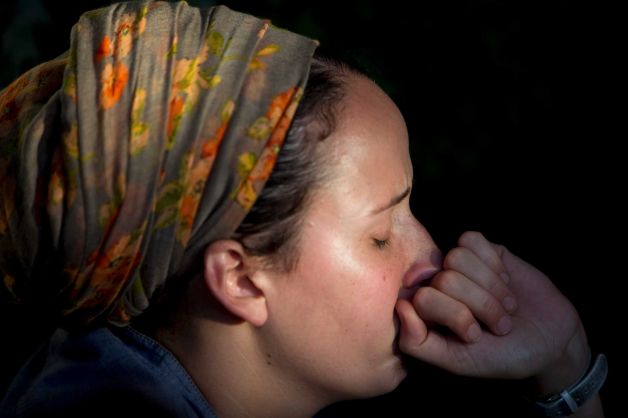Just when you thought it couldn’t get any worse in the Middle East, a mother’s voice cuts through the terrible din. The words belonged to Rachel Fraenkel, whose son Naftali had recently been kidnapped and murdered in the West Bank along with two other Jewish Israeli teens. In apparent revenge for these three deaths, Mohammed Abu Khdier, a Palestinian teenager, was kidnapped in Jerusalem and allegedly burned alive.
Fraenkel statement came after the traditional week of mourning for her son, and just hours after Mohammed’s funeral.
Even in the abyss of mourning for Gilad, Eyal and Nafali, it is difficult for me to describe how distressed we are by the outrage committed in Jerusalem—the shedding of innocent blood in defiance of all morality, of the Torah, of the foundation of the lives of our boys and of all of us in this country. . . No mother or father should ever have to go through what we are going through, and we share the pain of Mohammed’s parents.
You had to be listening to hear Fraenkel’s words over the bloodlust, the recrimination, the political exclamations, and the missile volleys between Israel’s cities and Gaza. It was a voice crying in the wilderness.
L’Chaim.

Samuel and Pearl Oliner began their book about rescuers of Jews and other victims during World War II with the following observation:
That people act in the service of their own self-interest is a maxim we are quite likely to accept. We are not even startled when they behave demonically. What we find difficult to accept or explain are behaviors that appear self-transcendent. (Preface at xviii)
Some of what is difficult “to accept or explain” comes from our reluctance to imagine the painful place that Fraenkel spoke from—to inhabit that sense of loss with her as she crossed a seething divide to grieve for another child who is tied by the cruelest of circumstances to her own. Because we hope it will never happen to us, that we’ll never have to find out what this kind of pain is like, we don’t take the five or ten minutes to envision for ourselves the possibilities that might exist beyond the pain. If we could be better at imagining “all the way through,” self-transcendence might be less of a puzzlement.
Sadly and far more often, graceful words and actions don’t break though the 24/7 overload to register with us at all. It’s the daily static of boredom, casual neglect, being hungry, bus exhaust, general shabbiness, deadlines, rudeness, fallen trees, gossip, bike riders yelling at cabdrivers, humidity, horniness, office chatter, cell phones, somebody complaining, body odor, feeling insecure, TV. The transcendent rarely breaks through it all, which means that on those occasions when it does, its break-through probably deserves its own place and time.
Prayer is partly the contemplation of exemplary stories, like Rachel Fraenkel’s: maybe on Sundays, or Friday nights after sundown, or at the end of the day before you go to sleep. Prayer never required a religion or specific words, but always calls for believing in something bigger than yourself, something that pulls you into a broader web of connectedness, and helps you to transcend the regular stuff of life.
Being quiet with your own ruminations is also required for prayer to happen, which reminds me of Tony Robbins tweet yesterday, that “Men prefer an electric shock to being alone with their thoughts.” (Silence is never as easy as it sounds.) Finally, it helps if you can recognize the intervals of grace that flutter like butterflies across everything else that clamors for your awareness.
They are often the places where hope can be found.